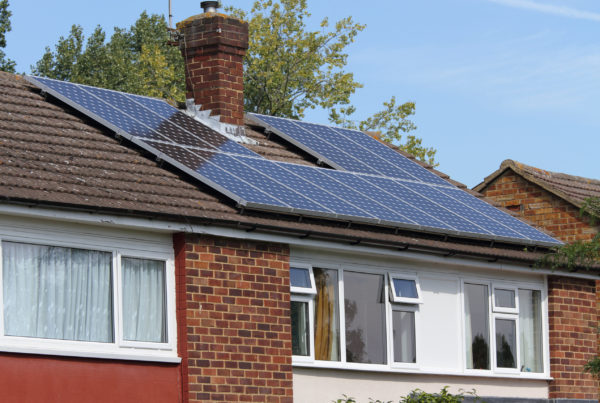
To a building owner planning a new construction project, hybrid geothermal systems are like diet soda. Just as a Diet Dr. Shasta[1] provides the same refreshing bold flavor of regular Dr. Shasta, while eliminating some of those pesky calories, a hybrid geothermal system offers nearly the same efficiency advantages as a full geothermal system, while eliminating some of the initial costs.
Full Geothermal Systems vs. Hybrid Geothermal Systems
Like the temperature of that last Dr. Shasta hidden in the back of your pantry, ground temperature remains relatively constant throughout the year. Geothermal systems take advantage of this by rejecting heat to the ground during facility cooling and accepting heat from the ground during facility heating. A conventional ground-source geothermal system consists of water-to-air and/or water-to-water heat pumps that are tied in to a closed water loop that is pumped through an adjacent system of subterranean piping – the well field. In order to reduce the size of the well field, a hybrid geothermal system utilizes a cooling tower or a boiler to provide auxiliary cooling or heating to the ground-loop water under peak conditions.
Hybrid Systems Save Energy
The intent of adding a cooling tower or boiler to supplement the ground loop is to help the system meet peak loads, and therefore, the auxiliary equipment typically won’t run during the majority of the year when the system is part-loaded. Due to the low amount of run time, the auxiliary equipment adds a relatively small amount of additional energy consumption, which puts the annual energy use in the same ballpark as a full geothermal system.
Hybrid Systems Reduce Initial Costs
The main motivation for installing a hybrid geothermal system over a full geothermal system is to reduce the size and cost of the well field. The cost of auxiliary equipment is typically significantly lower than drilling the well field that it replaces, as shown in the Initial Costs chart.
Hybrid Systems Present Unique Challenges
Hybrid geothermal systems, by definition, add complexity to the system and are highly dependent on having correctly sized equipment and tight controls. Systems used in colder climates, featuring a boiler, are less common because they are prone to overheating the loop water which causes maintenance issues, and they generally don’t offer a large efficiency advantage when compared with conventional systems.
Conclusion
Lower initial costs make hybrid geothermal systems viable for more facilities. With proper design and reliable maintenance, hybrid geothermal systems can provide efficiency benefits comparable to a full geothermal system. So, sit back and enjoy the energy savings while you crack a cold one[2].




